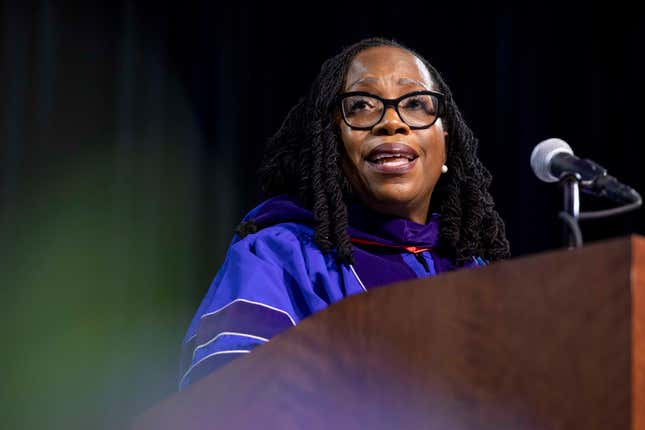
Supreme Court Justice Ketanji Brown Jackson has a way with words. And on the 60th anniversary of the horrific 1963 Baptist Church bombing, she used her gifts to urge the nation not to look away from our painful history.
“If we are going to continue to move forward as a nation, we cannot allow concerns about discomfort to displace knowledge, truth or history. It is certainly the case that parts of this country’s story can be hard to think about,” said Justice Jackson
Speaking at a ceremony at the 16th Baptist Church in Birmingham, AL, Jackson went on to note the importance of learning from our past. “We cannot forget because the uncomfortable lessons are often the ones that teach us the most about ourselves,” she said, adding. “We cannot learn from past mistakes we do not know exist.”
Her words, honoring the lives of the six children lost in the bombing and the ensuing chaos, are particularly poignant in this moment. The war against teaching Black history has reached a fever pitch. Conservatives in states like Florida and Tennessee have worked to pass laws banning the teaching of any history that could potentially make white children feel bad or uncomfortable.
As teachers in Tennessee rightly pointed out in a recent lawsuit, this makes it nearly impossible to accurately teach about the racial history of this nation. In Florida, the state has gone so far as to push the notion that slavery benefited slaves by giving them work experience, as if slavery was merely jobs training.
During her tenure on the Supreme Court, Jackson has rejected the notion that the legacy of racism in our country is irrelevant. In her dissent in the Affirmative Action case, Jackson argued that by pretending the legacy of racism had no impact on our modern world, “the majority” has made the colorblind world it “wistfully touts much more difficult to accomplish.”

